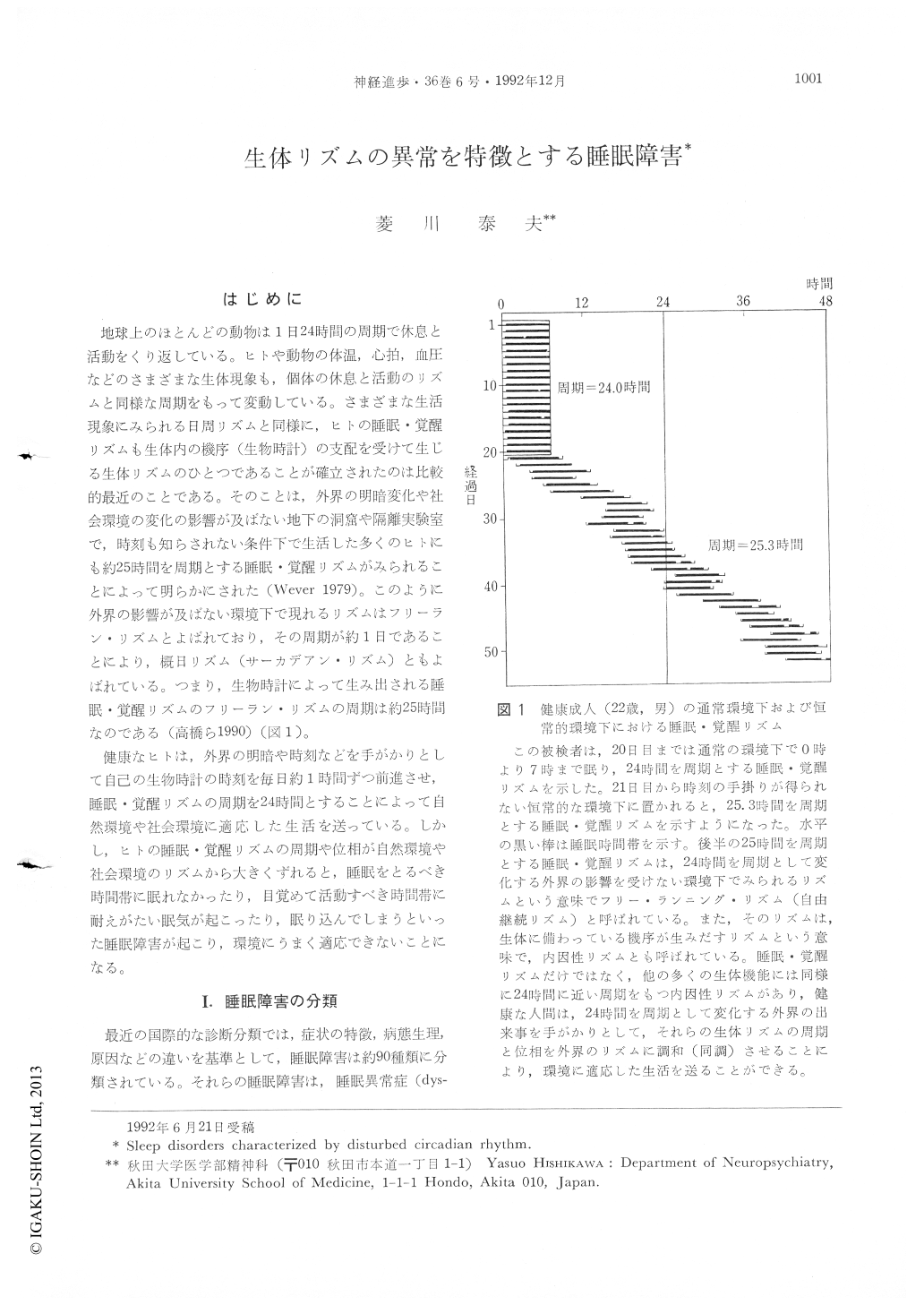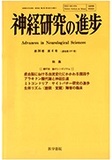Japanese
English
- 有料閲覧
- Abstract 文献概要
- 1ページ目 Look Inside
はじめに
地球上のほとんどの動物は1日24時間の周期で休息と活動をくり返している。ヒトや動物の体温,心拍,血圧などのさまざまな生体現象も,個体の休息と活動のリズムと同様な周期をもって変動している。さまざまな生活現象にみられる日周リズムと同様に,ヒトの睡眠・覚醒リズムも生体内の機序(生物時計)の支配を受けて生じる生体リズムのひとつであることが確立されたのは比較的最近のことである。そのことは,外界の明暗変化や社会環境の変化の影響が及ぼない地下の洞窟や隔離実験室で,時刻も知らされない条件下で生活した多くのヒトにも約25時間を周期とする睡眠・覚醒リズムがみられることによって明らかにされた(Wever 1979)。このように外界の影響が及ばない環境下で現れるリズムはフリーラン・リズムとよばれており,その周期が約1日であることにより,概日リズム(サーカデアン・リズム)ともよばれている。つまり,生物時計によって生み出される睡眠・覚醒リズムのフリーラン・リズムの周期は約25時間なのである(高橋ら1990)(図1)。
健康なヒトは,外界の明暗や時刻などを手がかりとして自己の生物時計の時刻を毎日約1時間ずつ前進させ,睡眠・覚醒リズムの周期を24時間とすることによって自然環境や社会環境に適応した生活を送っている。しかし,ヒトの睡眠・覚醒リズムの周期や位相が自然環境や社会環境のリズムから大きくずれると,睡眠をとるべき時間帯に眠れなかったり,目覚めて活動すべき時間帯に耐えがたい眠気が起こったり,眠り込んでしまうといった睡眠障害が起こり,環境にうまく適応できないことになる。
Circadian rhythm is found in many biological functions including sleep-waking, behavioral rest-activity pattern, and endocrine and automonic functions of man and animals. Circadian rhythm of sleep-waking is very important for healthy life adapted to the natural and social environments. In normal persons under ordinary environments, circadian sleep-wake rhythm has the period of 24 hrs. Under the circumstances deprived of the time cues such as light-dark rhythm, social activities and in-formation on clock time, the period of circadian sleep-wake rhythm is prolonged to about 25 hrs in the majority of normal persons (Weber 1979).
Among different kinds of sleep disorders in man, there is a group of sleep disorders characterized by disturbed circadian rhythm. They are jet-lag syndrome, shift work sleep disorder, irregular sleep-wake pattern, advanced sleep phase syndrome, delayed sleep phase syndrome and non-24 hrs sleep-wake rhythm syndrome. The former two circadian rhythm sleep disorders, jet lag syndrome and shift work sleep disorder, are caused by the modern way of human activities which disturb the regular circadian sleep-wake pattern in man. These two circadian rhythm sleep disorders are usually transient, lasting a few to several days. However, the other circadian rhythm sleep disorders are usually chronic, lasting for many months and years, and often seriously disturb the social life of patients. Other clinical and chronobiological features of these circadian rhythm sleep disorders as well as therapeutic measures available at present for them are reviewed.

Copyright © 1992, Igaku-Shoin Ltd. All rights reserved.


